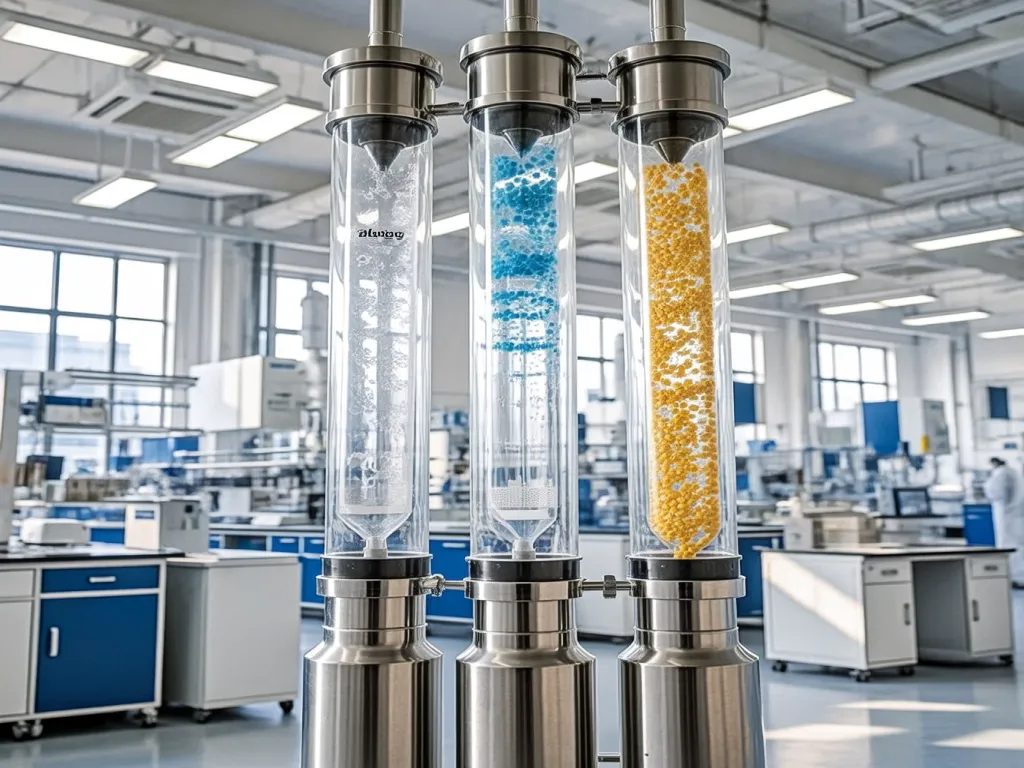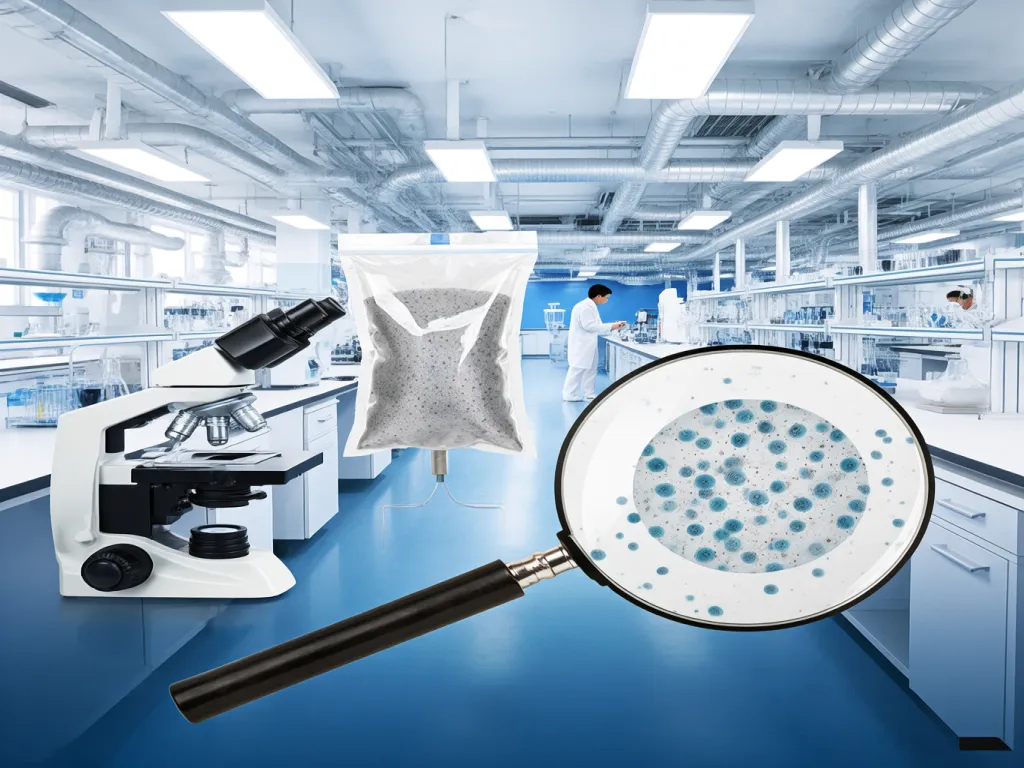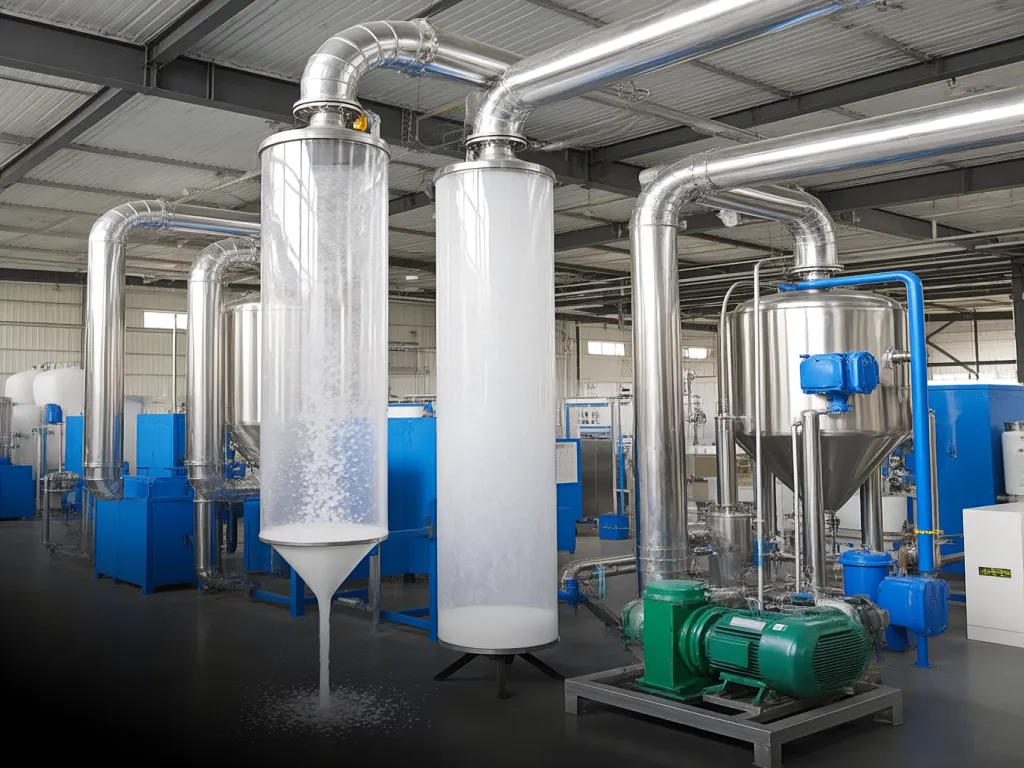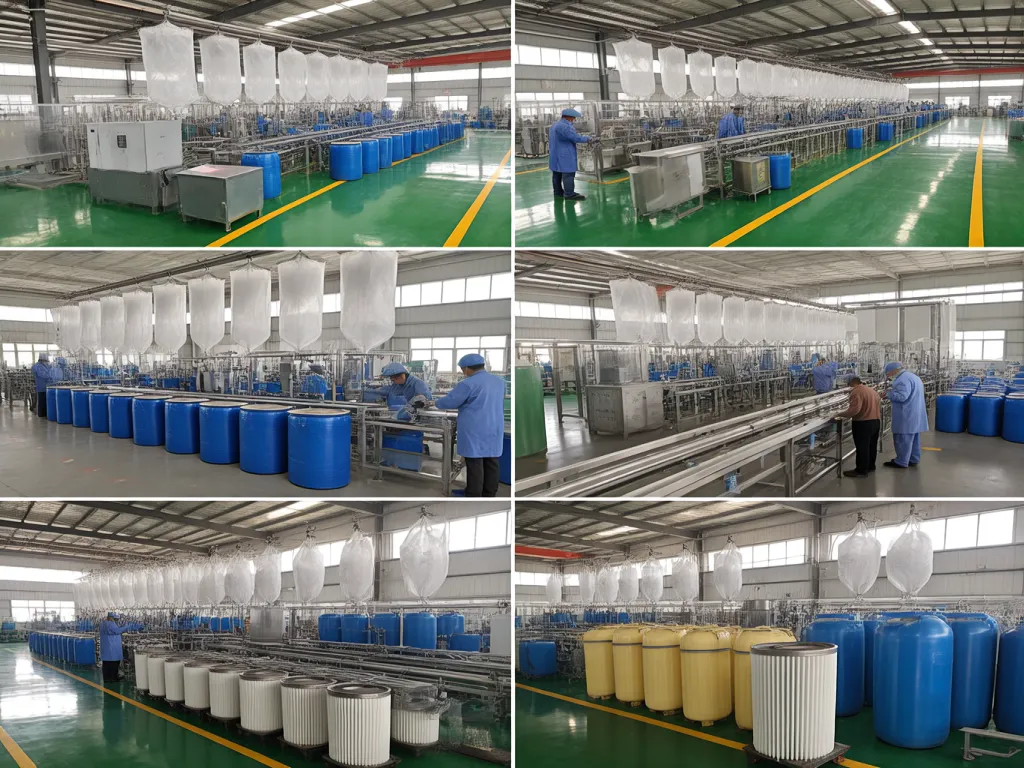5 Micron Filter Bag: Precision Meets Industry Demand
When it comes to industrial filtration, precision is king. But how do you ensure your system catches every unwanted particle without slowing down production? Enter the 5 micron filter bag—a tiny yet mighty solution transforming industries from food processing to pharmaceuticals. Imagine a filter so precise it can trap particles invisible to the naked eye, safeguarding product quality and worker safety. But why 5 microns? What makes this size the sweet spot for so many applications? Let’s dive into the science and real-world impact of this filtration powerhouse.

Precision Matched: A Deep Dive into 5 Micron Filter Bag Accuracy and Application Scenarios
When it comes to industrial filtration, the devil is often in the details—specifically, the micron rating of your filter bag. A 5 micron filter bag is a popular choice across industries, but why? Let’s break down the science behind this precision and explore its real-world applications in food processing, chemicals, and pharmaceuticals. First, what does ‘5 micron’ actually mean? A micron (μm) is one-millionth of a meter, and in filtration terms, it refers to the size of particles a filter can effectively capture. A 5 micron filter bag is designed to trap particles that are 5 microns or larger in diameter. To put that into perspective, human hair typically ranges from 50 to 100 microns in width. So, we’re talking about capturing particles that are significantly smaller than what the naked eye can see. But how does this translate into practical benefits across different industries? Let’s dive deeper. In food processing, the stakes are high. Contaminants like bacteria, yeast, mold spores, and even tiny fragments of packaging material can compromise product safety and shelf life. A 5 micron filter bag acts as a critical barrier, ensuring that only clean, pure ingredients make it into your final product. For example, in dairy processing, where milk undergoes multiple filtration steps, a 5 micron filter can remove residual fat globules and somatic cells, resulting in a cleaner, more stable product. Similarly, in beverage production, such as brewing beer or making wine, a 5 micron filter can clarify the liquid by removing yeast and protein aggregates, enhancing both taste and appearance. Moving on to the chemical industry, the demands shift slightly. Here, the focus is often on protecting equipment and ensuring process efficiency. Chemicals can contain a wide range of particulates, from insoluble salts to catalyst residues. A 5 micron filter bag prevents these contaminants from clogging pipes, valves, and reactors, reducing downtime and maintenance costs. In the production of paints and coatings, for instance, a 5 micron filter ensures a smooth, consistent finish by removing agglomerated pigments and fillers. In the pharmaceutical sector, precision is paramount. Drug manufacturing requires sterile conditions, and even the smallest particle can contaminate a batch, leading to costly recalls or regulatory penalties. A 5 micron filter bag is often used in pre-filtration steps to remove larger impurities before final sterilization, ensuring compliance with stringent quality standards. In vaccine production, where purity is non-negotiable, these filters play a crucial role in maintaining the integrity of the active ingredients. Now, you might be wondering: ‘Why not go for a finer filter, like 1 micron?’ While that’s a valid question, it’s essential to balance filtration efficiency with flow rate and operational costs. A 5 micron filter offers an optimal compromise, providing excellent particle removal without excessively restricting flow, which could slow down production or increase energy consumption. For a deeper understanding of how micron ratings impact filtration efficiency, you can refer to this micron rating guide. In summary, the science behind a 5 micron filter bag lies in its ability to precisely capture particles that are just small enough to pose a risk but large enough to be efficiently removed without compromising process performance. Its versatility across food processing, chemicals, and pharmaceuticals highlights its role as a workhorse in industrial filtration, offering reliability, efficiency, and peace of mind.

Food Processing: Ensuring Purity and Safety
In the food industry, contamination risks are ever-present, and the consequences of a lapse can be severe—ranging from product recalls to health hazards. A 5 micron filter bag serves as a frontline defense, capturing microscopic contaminants that could otherwise spoil your product or harm consumers. Take dairy processing, for example. Raw milk contains fat globules, somatic cells, and even traces of dirt or debris. A 5 micron filter removes these impurities, ensuring that the milk is clean and safe for further processing into cheese, yogurt, or butter. Similarly, in juice production, a 5 micron filter clarifies the liquid by removing pulp residues and yeast, resulting in a clearer, more appealing beverage. The key here is that a 5 micron filter strikes the right balance—it’s fine enough to catch harmful particles but not so restrictive that it slows down production or increases costs unnecessarily.
Chemical Industry: Protecting Equipment and Processes
The chemical industry deals with a wide variety of substances, many of which are corrosive, abrasive, or prone to forming deposits. A 5 micron filter bag plays a vital role in preventing these contaminants from causing damage to equipment or disrupting processes. In paint manufacturing, for instance, pigments and fillers can clump together, forming agglomerates that would mar the final finish if not removed. A 5 micron filter ensures a smooth, consistent product by capturing these particles before they reach the spray nozzle or applicator. Similarly, in the production of detergents and cleaners, a 5 micron filter removes undissolved solids, preventing clogging in dispensing systems and ensuring that the product performs as intended. For chemical plants, this translates to fewer breakdowns, lower maintenance costs, and smoother operations overall.
Pharmaceuticals: Meeting Stringent Quality Standards
In pharmaceuticals, the stakes couldn’t be higher. Drug manufacturing requires absolute purity, and even the tiniest particle can compromise a batch’s safety or efficacy. A 5 micron filter bag is often used in pre-filtration steps to remove larger impurities before final sterilization, which typically involves finer filters (e.g., 0.2 micron). This two-step approach ensures that the final product is free from contaminants while optimizing the filtration process—coarser filters handle the bulk of the particles, reducing the load on finer filters and extending their lifespan. In vaccine production, where every dose must meet exacting standards, a 5 micron filter plays a critical role in maintaining the purity of the active ingredients. By removing larger impurities early in the process, it helps ensure that the final product is both safe and effective.

How 5 Micron Filter Bags Effectively Intercept Particles in Various Industrial Scenarios
When it comes to industrial filtration, precision is everything. A 5 micron filter bag isn’t just a piece of equipment; it’s a guardian of quality and safety across multiple sectors. Let’s dive into how this tiny but mighty tool tackles specific particle sizes in different industrial environments, ensuring your products meet the highest standards while keeping your workspace safe.
Imagine you’re in the food processing industry. Here, even the smallest contaminants can spoil an entire batch, leading to financial losses and damaged reputation. A 5 micron filter bag acts like a microscopic sieve, capturing particles as small as 5 microns in diameter. That’s roughly the size of a single grain of pollen! By trapping these minuscule invaders, it prevents them from contaminating your food products, ensuring purity and extending shelf life. But how does it do this so effectively?
The secret lies in the filter’s material and construction. Typically made from high-quality polyester or polypropylene, these bags feature a dense weave pattern. As liquids or gases pass through, the fabric’s tiny pores allow only clean fluid to flow while blocking larger particles. It’s like having millions of tiny gates that open and close based on particle size, ensuring only the good stuff gets through.
Now, let’s shift gears to the chemical industry. In this high-stakes environment, even trace amounts of impurities can alter chemical reactions, leading to unsafe products or equipment damage. A 5 micron filter bag shines here by precisely removing unwanted solids from liquids or gases. For instance, in a pharmaceutical manufacturing plant, these filters ensure that active ingredients remain pure by eliminating any foreign particles that could compromise drug efficacy or safety. The importance of such filtration is further highlighted by industry studies, such as those available on research platforms, which emphasize the critical role of filtration in maintaining product integrity.
But what about industries dealing with abrasive materials? Take mining, for example, where slurry contains coarse particles that can wear down equipment quickly. Here, a 5 micron filter bag might seem too delicate, but don’t be fooled. When paired with a pre-filtration stage using coarser filters, the 5 micron bag serves as the final polish, capturing fine particles that would otherwise cause long-term damage. This two-step approach maximizes filter life and minimizes maintenance costs.
Safety is another critical aspect where 5 micron filter bags excel. In industries like metalworking, airborne particles from grinding or cutting operations pose serious health risks to workers. These filters effectively capture metal shavings and dust, preventing them from circulating in the air and being inhaled. By maintaining clean air quality, they reduce respiratory issues and create a safer working environment.
You might wonder, ‘How do I know if a 5 micron filter is right for my application?’ Great question! The key lies in understanding your specific needs. If your process requires removing very fine contaminants or achieving high levels of purity, a 5 micron filter is likely your best bet. However, if you’re dealing with larger particles or higher flow rates, you might need a coarser filter upstream to prevent clogging and extend the lifespan of your 5 micron bag.
In essence, the effectiveness of a 5 micron filter bag hinges on its ability to balance precision with practicality. It’s not about catching every single particle (which would be impossible and unnecessary); it’s about targeting the right size range to protect your products and processes. By doing so, it enhances product quality, reduces waste, and ensures compliance with industry regulations—all while keeping your operations running smoothly.
Food Processing: A Microscopic Shield Against Contamination
In the food industry, cleanliness isn’t just a preference; it’s a legal requirement. A 5 micron filter bag plays a crucial role in maintaining hygiene standards by capturing bacteria, yeast, and other microorganisms that are typically larger than 5 microns. This level of filtration ensures that beverages like beer or wine remain crystal clear and free from off-flavors caused by microbial activity. Similarly, in dairy processing, these filters remove somatic cells and other impurities from milk, improving its shelf life and taste.
Chemical Industry: Precision Purification for Critical Processes
Chemical manufacturing often involves sensitive reactions where impurities can derail the entire process. A 5 micron filter bag provides the necessary precision to remove catalysts residues, undissolved solids, or even tiny gel particles that form during polymerization. For example, in the production of polymers, these filters ensure that the final product meets strict molecular weight distribution criteria, which is vital for performance in applications like automotive parts or medical devices.
Mining & Metals: Protecting Equipment and Product Quality
While mining operations generate coarse slurry, the importance of fine filtration cannot be overstated. After primary separation using hydrocyclones or screens, a 5 micron filter bag acts as a polishing step, removing remaining clay, silt, or other fine particles. This not only protects downstream equipment like pumps and valves from abrasion but also ensures that the final concentrate meets market specifications. In metal refining, similar filters purify electrolytes used in electroplating, preventing defects in coated surfaces.

Real-World Success Stories: How 5 Micron Filter Bags Tackled Specific Filtration Challenges
When it comes to industrial filtration, the proof is always in the application. Let’s dive into some real-world scenarios where 5 micron filter bags didn’t just meet expectations—they exceeded them, solving filtration problems that had stumped engineers and procurement managers alike.
First up, let’s talk about a food processing plant that was struggling with oil contamination in their cooking oil filtration system. Before implementing 5 micron filter bags, they were dealing with frequent downtime due to clogged filters and inconsistent product quality. The culprit? Tiny particles of fried food debris that were slipping through their existing filtration setup. By switching to 5 micron filter bags, they saw an immediate improvement. The bags effectively trapped those elusive particles, reducing downtime by 40% and improving the clarity and taste of their final product. The plant manager couldn’t be happier, noting, ‘It’s like night and day. Our oil stays cleaner longer, and our customers can taste the difference.’
Next, consider a chemical manufacturing facility that was grappling with a persistent issue in their solvent recovery process. Solvents were being contaminated with fine particulates, leading to wasted product and increased costs. Traditional filters weren’t cutting it, allowing too many particles to pass through. Enter the 5 micron filter bag. Its precise filtration capability meant that only the cleanest solvents made it through, reducing waste and saving the company thousands of dollars annually. The head engineer at the plant remarked, ‘We’ve tried everything, but these 5 micron bags are the real deal. They’ve transformed our solvent recovery process.’
Let’s not forget about the pharmaceutical industry, where purity is paramount. A pharmaceutical company was facing challenges in their active pharmaceutical ingredient (API) filtration process. Even the smallest impurities could compromise the efficacy and safety of their drugs. After extensive testing, they adopted 5 micron filter bags, which provided the level of filtration needed to meet stringent regulatory standards. The result? A significant reduction in product recalls and an increase in customer trust. The quality control manager shared, ‘These bags have been a game-changer for us. They ensure our APIs are as pure as possible, which is crucial for patient safety.’ For more insights into pharmaceutical filtration standards, you may refer to industry-specific guidelines such as those provided by the United States Pharmacopeia.
But what about industries dealing with extremely corrosive substances? A metal plating company was struggling with filter degradation due to harsh chemicals. Their previous filters were failing prematurely, leading to frequent replacements and increased costs. The solution? 5 micron filter bags made from a specialized, corrosion-resistant material. These bags not only withstood the corrosive environment but also maintained their filtration efficiency over extended periods. The plant supervisor observed, ‘We’ve cut our filter replacement costs by half and improved our process reliability. These bags are tough as nails.’
Finally, let’s look at a water treatment facility that was battling algae blooms in their intake water. Algae particles were clogging their filters and affecting the quality of their treated water. By incorporating 5 micron filter bags into their pre-filtration stage, they were able to capture the algae before it reached their main filtration system. This proactive approach reduced maintenance needs and improved overall water quality. The facility operator said, ‘It’s amazing how such a small change can make such a big difference. Our water is cleaner, and our systems run smoother.’
These stories highlight the versatility and effectiveness of 5 micron filter bags across a range of industries. Whether you’re dealing with food debris, chemical particulates, pharmaceutical impurities, corrosive substances, or algae, there’s a good chance a 5 micron filter bag can provide the solution you need. So, how can you determine if a 5 micron filter bag is right for your specific challenge? Start by assessing the size and nature of the particles you need to filter. Then, consider the environmental conditions your filter will face, such as temperature, pressure, and chemical exposure. Finally, think about the impact on your production process—will cleaner filtration reduce downtime, improve product quality, or save you money? If the answer is yes, then it’s time to give 5 micron filter bags a try.
Food Processing Plant Triumph
A food processing plant faced frequent downtime and inconsistent product quality due to oil contamination. By switching to 5 micron filter bags, they reduced downtime by 40% and improved the clarity and taste of their cooking oil, leading to happier customers and more efficient operations.
Chemical Manufacturing Breakthrough
A chemical manufacturing facility struggled with solvent contamination. The adoption of 5 micron filter bags resulted in cleaner solvents, reduced waste, and significant annual cost savings, transforming their solvent recovery process.
Pharmaceutical Industry Purity
A pharmaceutical company needed to ensure the purity of their active pharmaceutical ingredients. 5 micron filter bags provided the necessary filtration, leading to fewer product recalls and increased customer trust.
Corrosion-Resistant Solutions
A metal plating company dealt with filter degradation due to harsh chemicals. Specialized, corrosion-resistant 5 micron filter bags withstood the environment, reduced replacement costs, and improved process reliability.
Water Treatment Facility Success
A water treatment facility battled algae blooms. Incorporating 5 micron filter bags into their pre-filtration stage captured algae, reduced maintenance, and improved water quality.
From blocking bacteria in pharmaceuticals to refining chemicals in manufacturing, the 5 micron filter bag proves that size truly matters in industrial filtration. By understanding its precision and adaptability, you’re now equipped to choose the right filter for your unique challenges. Ready to upgrade your system? Explore our selection guide or share this post with colleagues facing similar filtration hurdles. The next breakthrough in your production line might just be a micron away—what will you filter out today?
